Illustrations: Clowning Around
They might conjure fond memories of circus antics or be your worst nightmare, but clowns were a popular subject for Saturday Evening Post covers, due largely in part to the popularity of circuses in the first half of the twentieth century. We looked through our archive to find clown illustrations by some of our best known artists, including Norman Rockwell and J.C. Leyendecker. Most of our clowns are charming (or at least not frightening), but we did find one particularly scary clown from an image illustrating a short story. The clown in the picture might not be central to the story, but he more than makes up for it in creepiness.
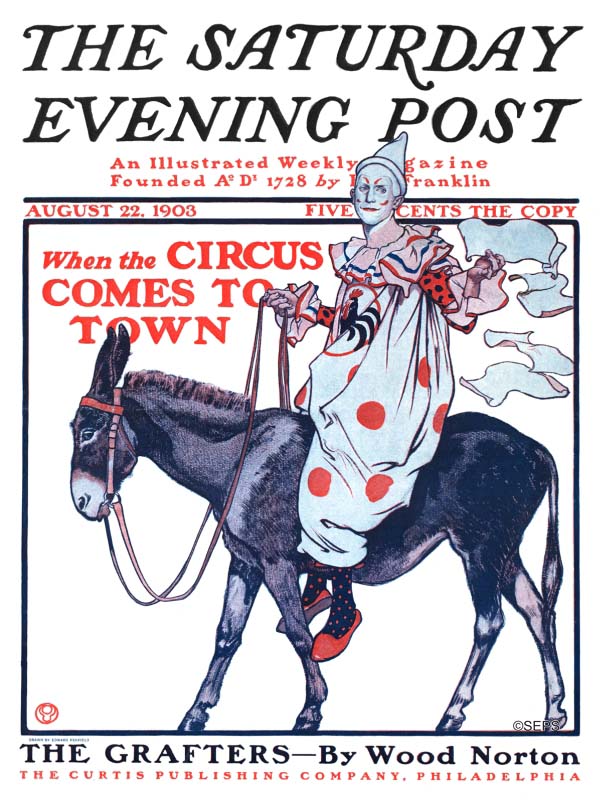
Edward Penfield
August 22, 1903
This not-so-cheery clown has been stuck with the job of handing out circus flyers. The artist is Edward Penfield, known as the father of the art poster. His first posters were created to advertise issues of Harper’s magazine from the late 1800s. He later created 20 covers for the Post, using his signature strong lines and bold style.
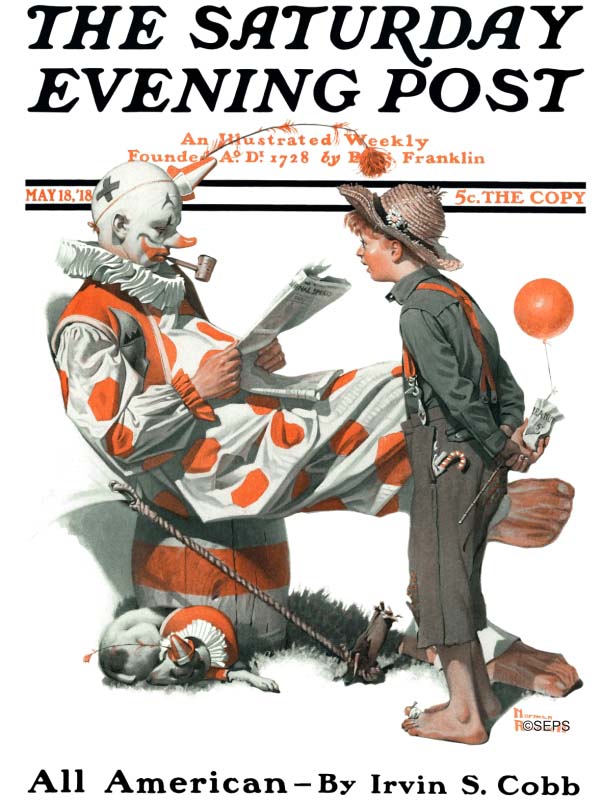
Norman Rockwell
May 18, 1918
Norman Rockwell painted several circus-themed covers, including this one fairly early in his career. Here, the world-weary clown, his newspaper folded “subway style,” ignores the awestruck country boy. The dog in the illustration is Lambert, Rockwell’s own pet. Rockwell recalls that Lambert was a thoughtful model, who, when placed in position on the stand, would sit for hours with his head cocked to one side.
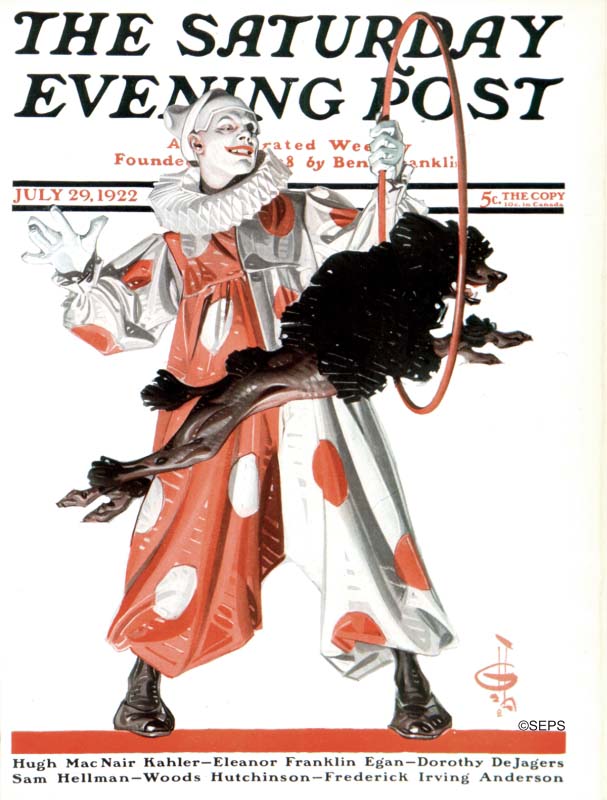
J.C. Leyendecker
July 29, 1922
In the mid-1800s, the Standard Poodle became a popular circus performer because of its intelligence and stamina. Leyendecker painted six circus-themed covers for the Post, with our poodle friend making a second appearance in one of them.
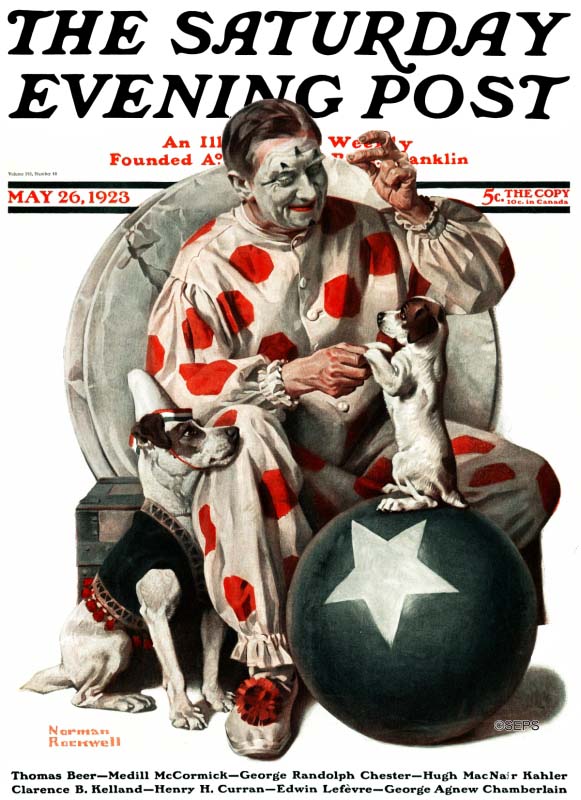
Norman Rockwell
May 26, 1923
A look behind the scenes at the big top reveals the house of disciplined practice that result in a show that delights the circus-goers in the ring. The pup learns his lesson under the stern eye of the older dog, who manages a degree of dignity despite the absurdity of the costume.
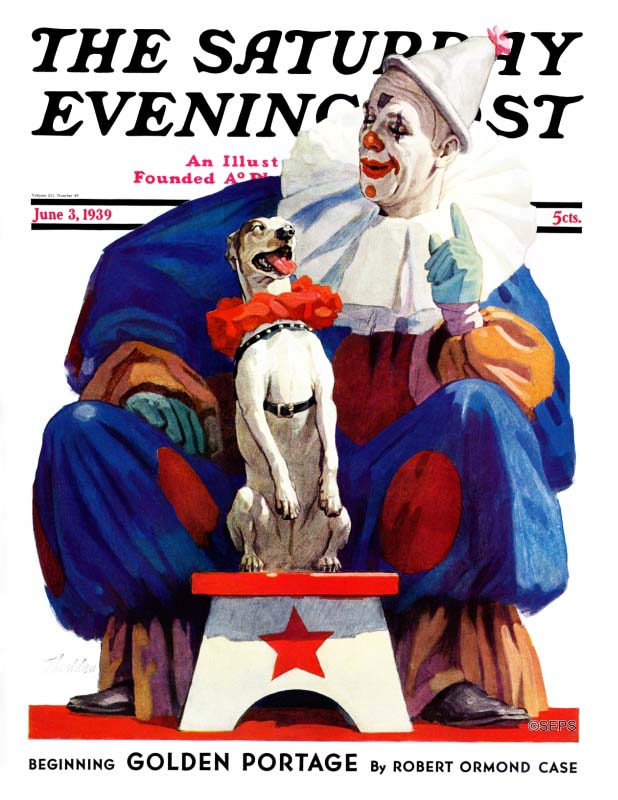
John E. Sheridan
June 3, 1939
From 1931 to 1939 Sheridan illustrated thirteen covers for Post with predominant sporting and military themes, so this vivid picture of a clown and his dog was quite the departure for him.
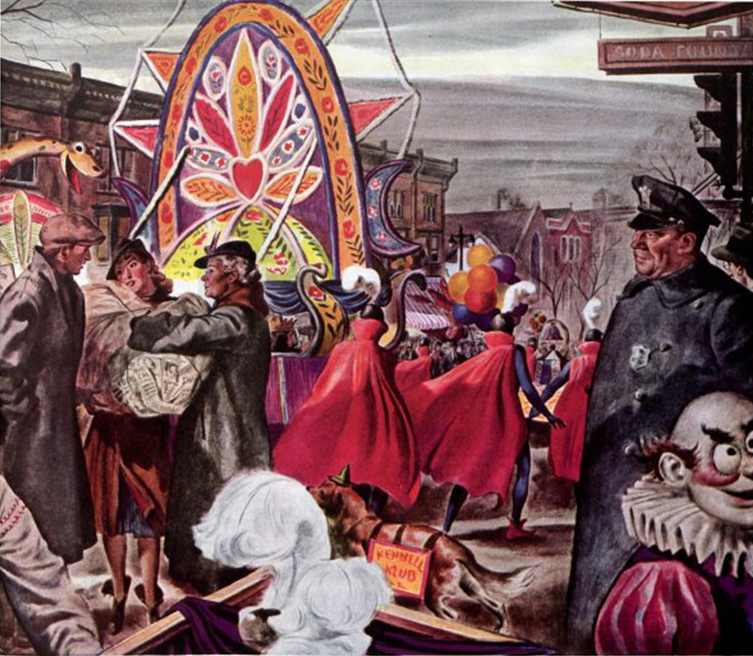
Ben Stahl
January 3, 1942
Ah, here is the inside illustration we warmed you about! The major action is taking place on the left side of the illustration, with the policeman looking on with concern. But that clown! His intentions seems to be more Stephen-Kingian and less Norman-Rockwellian.
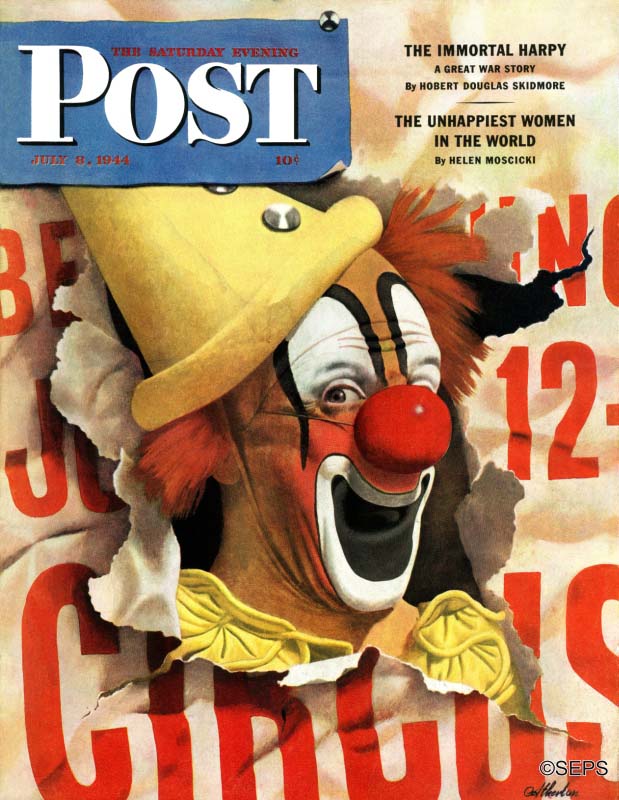
John Atherton
July 8, 1944
World War II was raging, and the pages of this issue were filled with advertisments supporting the war and stories of soldiers in battle. The Post must have thought that its readers needed a little respite; this John Atherton cover was the result.